
Maryam Farooqi
AI-Powered Autonomous Kelp Farms for Carbon Capture Scientists
Mentor: George Abe
Year: Freshman
My project proposal is an interdisciplinary project to develop scalable, carbon-negative ocean infrastructure using autonomous kelp farms powered by AI, robotics, and renewable energy. By leveraging the rapid carbon-absorbing capabilities of giant kelp, the system captures atmospheric CO2 while restoring marine ecosystems. Artificial intelligence manages site selection, growth optimization, and harvesting strategies using real-time oceanographic and climate data, while autonomous drones and underwater robotics conduct operations such as seeding, maintenance, and harvesting. The carbon captured is verified and certified for carbon credit markets, while harvested kelp is processed into sustainable products such as bioplastics, biofuels, and regenerative fertilizers.
The final product of the project is designed to be carbon-neutral, operating entirely on offshore solar and wave energy, and using edge-computing to reduce emissions from cloud infrastructure. This combines many factors to create a financially viable solution to climate change that is ecologically restorative and potentially scalable.
This research will produce a working prototype system, a predictive AI model, and a carbon accounting and crediting pipeline, paving the way for future pilot deployments. There is immense potential for immense impact in climate mitigation, biodiversity restoration, and sustainable industry development.

Nathan Le
Framework for Evaluating the Safety of Chatbots in Mental Health
Mentor: Rick Dale
Year: Junior
As AI-powered chatbots and large language models (LLMs) become increasingly common, more people struggling with depression, anxiety, and suicidal thoughts are turning to these systems for support. Yet no standardized, publicly available method exists to evaluate how safe or responsible they truly are in high-risk mental health situations. My project addresses this gap by developing a rigorous, research-backed framework with standardized metrics and testing procedures, so that users, developers, and policymakers can assess whether chatbots uphold critical safety standards in mental health care.
Drawing on established practices in clinical mental health, the protocol will focus on two core dimensions: response safety (how chatbots handle sensitive conversations) and data safety (how they manage user information during moments of vulnerability). I will pilot this framework on publicly available models to identify patterns of safety failure and outline actionable improvements.
As a former Crisis Text Line volunteer, I’ve seen how deeply people need safe support when they’re in pain. It’s heartbreaking to know that real harm can result from unsafe AI systems when better design is possible. Through this project, I aim to provide a clear, adaptable toolkit that paves the way for safer AI across the Internet.
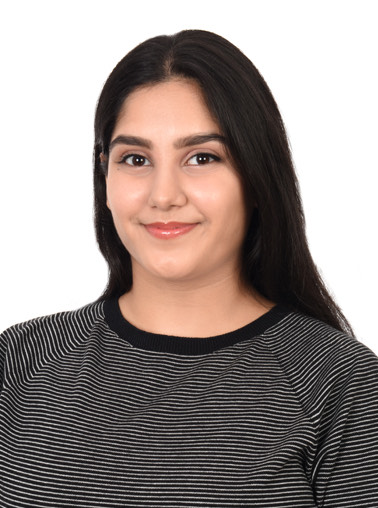
Mansha Rapria
“You”: An Anonymous Mental Health Platform for UCLA Students
Mentor: Chris Gilbert
Year: Freshman
Despite the growing availability of campus mental health services, many students hesitate to seek help due to stigma, fear of judgment, or discomfort with formal systems. Drawing from personal and peer experiences, I noticed that students often feel more comfortable opening up to strangers—particularly online—because anonymity removes fear of long-term consequences or interpersonal fallout.
“You” is a free, UCLA-specific mobile app that leverages this tendency by offering two anonymous support panels: (1) Peer-to-peer support, where students facing similar mental health struggles can talk and connect, realizing they are not alone, and (2) Volunteer therapist support, where users can engage with trained UCLA student volunteers or faculty members interested in mental health advocacy. Both spaces maintain strict anonymity, ensuring a non-judgmental environment.
The project aligns closely with the Internet Research Initiative (IRI) by exploring how digital anonymity affects access to mental health support and how internet platforms can be reimagined for community care. “You” is both a practical intervention and a research tool that contributes to broader questions about trust, digital identity, and well-being in online spaces. This initiative will not use proprietary technology or violate any intellectual property rights. All contributors will participate voluntarily and ethically.
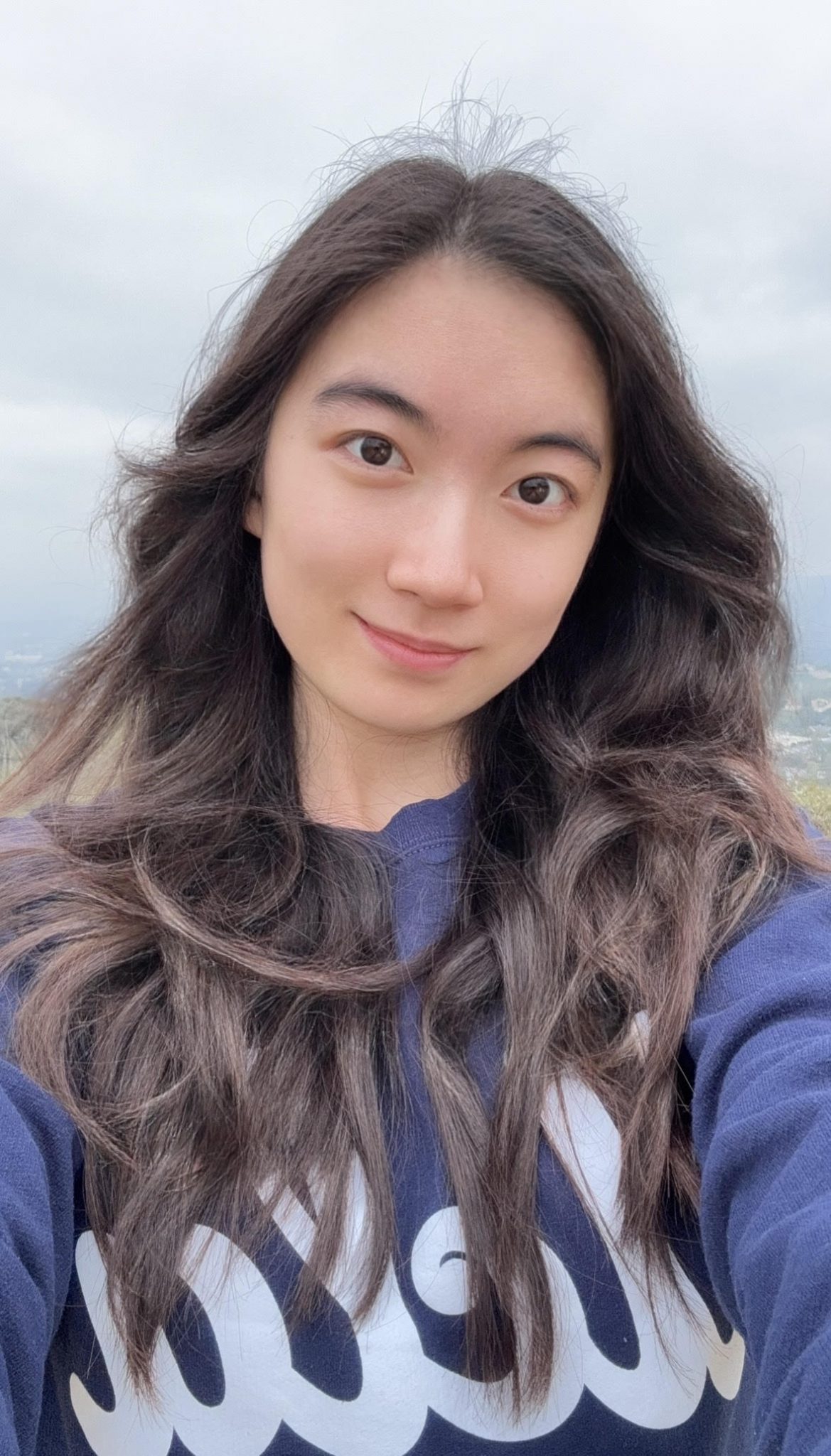
Larissa Xu
Reinforcement Learning in Continuous Space and Timel
Mentor: Leonard Kleinrock
Year: Sophomore
While Reinforcement Learning has proven effective for sequential decision-making in discrete environments, many real-world applications in autonomous vehicles and robotics inherently operate in continuous state-action spaces and time. However, current Markov Decision Process (MDP) theory primarily addresses finite state-action spaces with constant time increments, which motivates our expansion of MDP theory to these more continuous and applicable cases.
Building on my mentor’s expertise in multi-agent systems with information asymmetry, we aim to make two significant contributions:
1.We will extend MDP theory to continuous state-action spaces and time, establishing theoretical guarantees for these more realistic settings.
2.We will develop frameworks for continuous multi-agent MDPs with asymmetric information, where players take simultaneous actions with different feedback. Strongly applicable to cyber-physical systems, finance, and communication networks.
This work bridges critical gaps between reinforcement learning theory and practice and enables more reliable deployments in complex, continuous domains where current approaches fall short.

Andrew Bistras
Open-Source LLM Reference for Ordinary Meaning in Legal Texts
Mentor: Venky Harinarayan
Year: Junior
Our constitution and many of our laws have largely stayed the same over our country’s lifetime, yet judges’ interpretations of even the most trivial texts remain inconsistent or contradictory. Simply put, judges are often incapable of interpreting the ordinary, everyday meaning of English phrases. The standard solution is to find verifiable references such as dictionaries for definitions of statutory language, but there currently exists no source which can account for multi-word, contextual phrases, leading to a multitude of interpretations. For example, depending on which judge happens to preside over the case and where they live, acts like speeding in a school zone may constitute a “violent felony”, or having a knife in your pocket while committing petty theft may constitute “physical restraint”. These judgments often mean an order of magnitude of difference in jail time. This past year, prominent judges have written that LLMs may offer a solution– they see more everyday text than anyone, and research has shown that it is, in principle, feasible to build a LLM which is transparent to laypeople and gives nuanced, traceable meanings of these terms. I’d like to be the first one to do it.
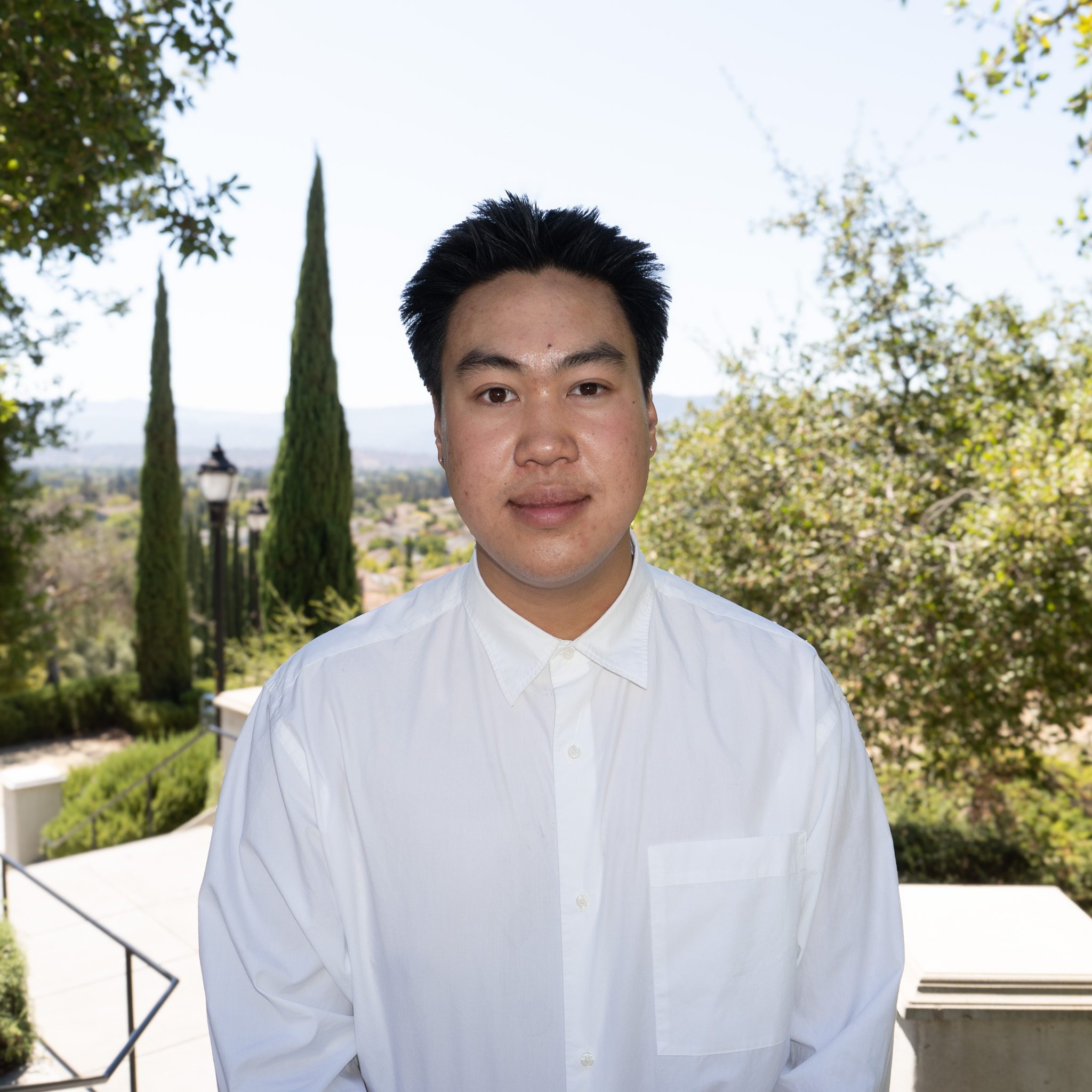
Duy Nguyen
Evolving the self-regulated learning process through the usage of LLMs
Mentor: Carey Nachenberg
Year: Junior
Peer and instructor-led feedback is often valuable yet difficult to access in higher education, where support is typically limited to office hours. Conversely, self-directed feedback can also be effective, but its quality depends on the learner’s experience and metacognitive awareness. The Self-Regulated Learning (SRL) framework consists of three phases: forethought, performance, and self-reflection. Of these, self-reflection is most critical to learning, yet it is often limited by the learner’s ability to generate corrective feedback.
This project proposes to evaluate whether prompt-engineered large language models can guide self-directed feedback to match the quality provided by peers and instructors. Rather than training a new model, we will design an SRL-aligned prompt framework to guide students through each SRL phase. In forethought, the LLM will prompt students to articulate their approach to a task. During performance, it will respond to students’ strategies. In self-reflection, students will assess their own work, followed by an LLM-generated meta-evaluation to deepen their intuition and metalearning.
We will submit our methodology to UCLA’s Institutional Review Board and conduct a pilot study with 5–10 students, followed by a larger study with 40–50 participants. This research aims to expand access to high-quality feedback through ethically guided use of AI.
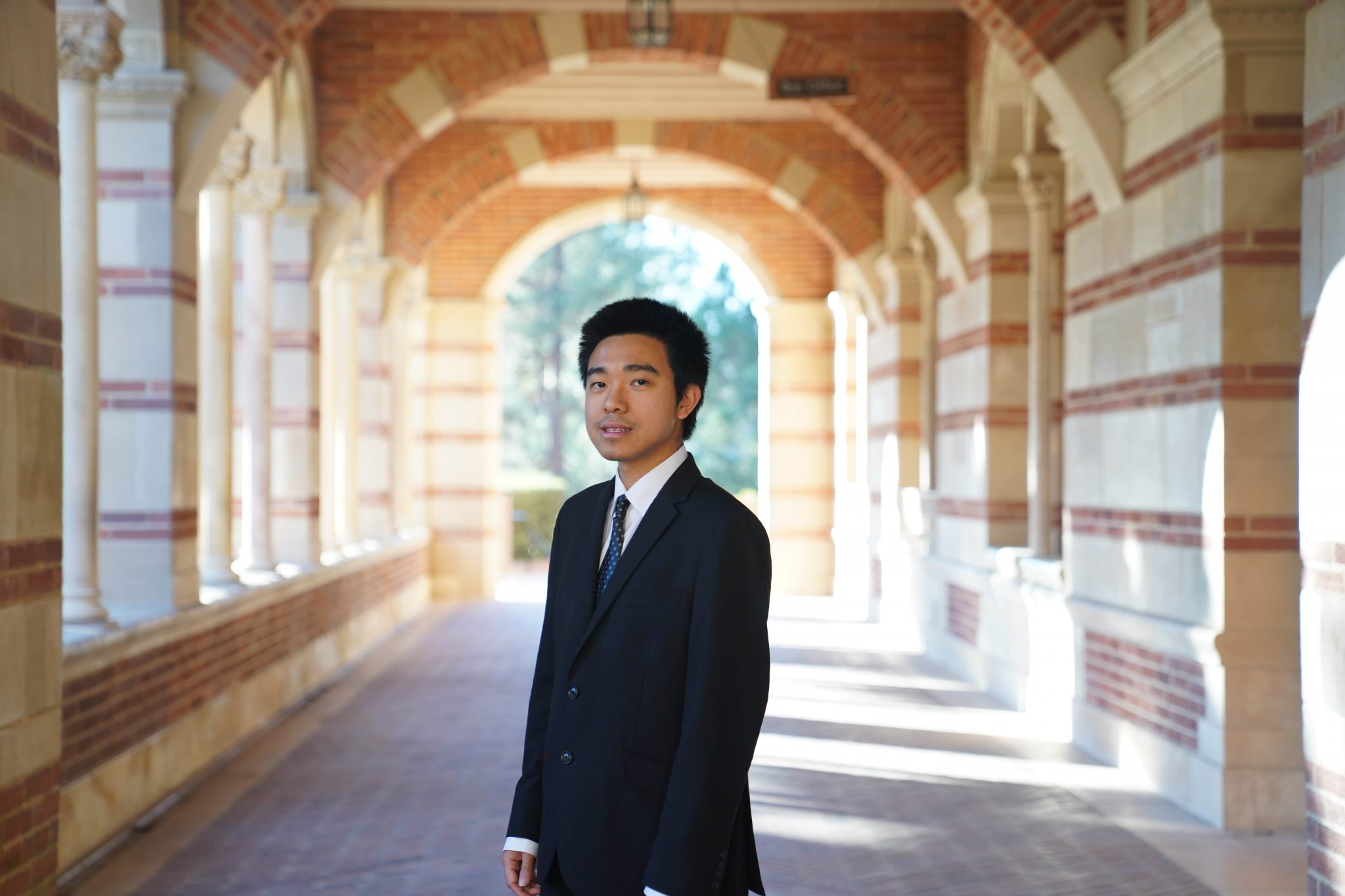
Grand Liudi
AI-Generated Professional Images for Career Equity
Mentor: Amit Sahai
Year: Junior
This project investigates the barriers faced by low-income individuals in accessing professional opportunities due to the lack of affordable attire and high-quality images for job applications, resumes, and digital profiles. In a world increasingly reliant on online presence, the visual component of professionalism—such as wearing a suit or posing against a formal background—can play a crucial role in shaping first impressions. Unfortunately, not everyone has the resources to meet these visual expectations.
My project explores the use of AI-generated images to create professional-looking portraits by digitally enhancing attire and backgrounds. This technology has the potential to help job seekers present themselves confidently without needing to purchase expensive clothing or hire photographers. By studying the social, ethical, and technical implications of this approach, I aim to assess its impact on equity, bias, and representation.
This project is unique in its focus on the intersection of artificial intelligence and career accessibility. It considers how emerging tools can be used not just for creativity or convenience, but for social justice. The primary beneficiaries will be individuals from underrepresented and economically disadvantaged communities. Ultimately, this work aims to contribute to a more inclusive and equitable future in how we present ourselves online.
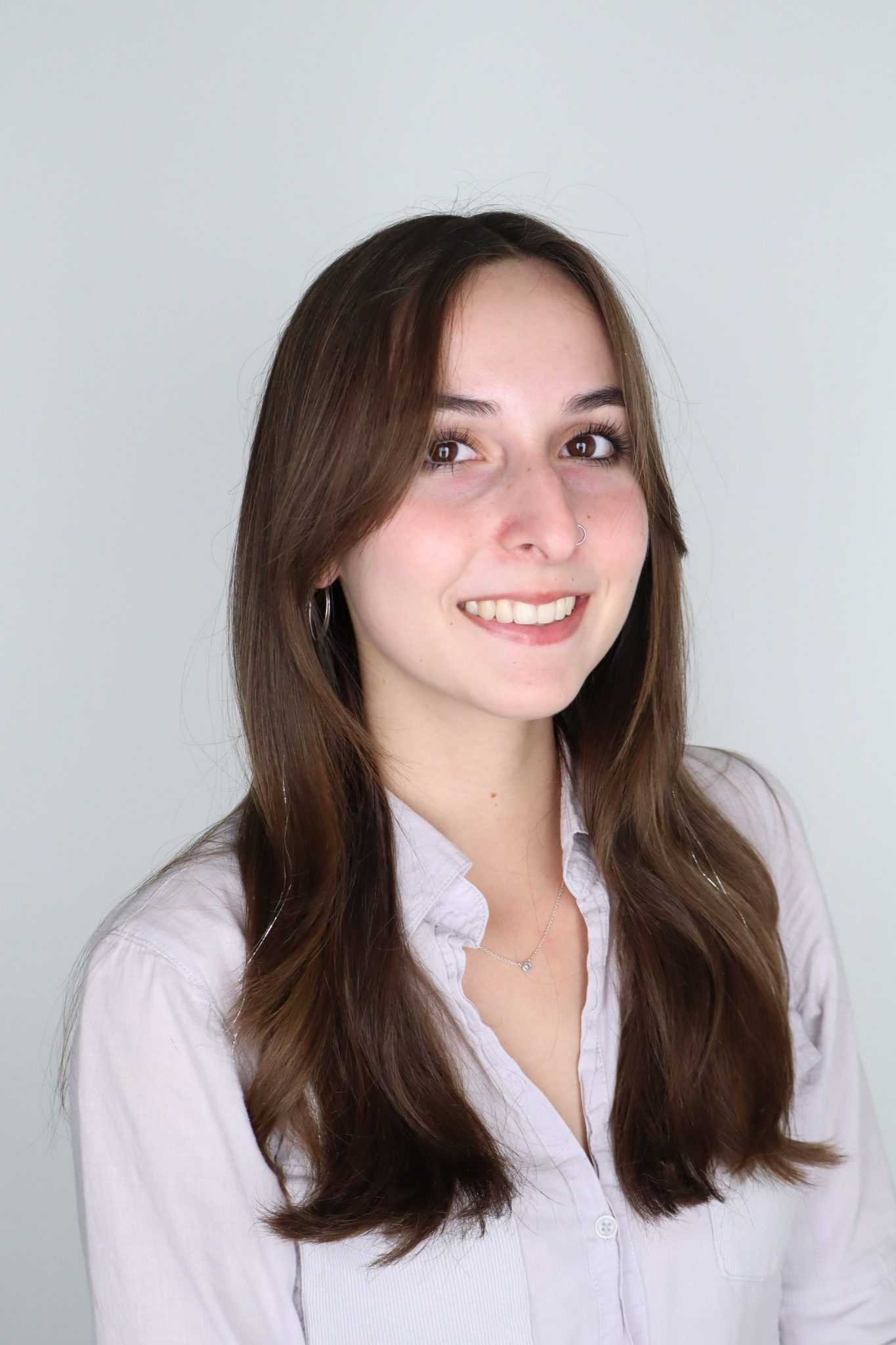
Juliana Girotto
Networks of Resistance: Grassroots Internet Infrastructure and Digital Equality
Mentor: Maggi Phillips
Year: Sophomore
Billions of people worldwide remain disconnected from the Internet, often due to the failure of governments and private service providers to deliver equitable access—especially in rural, remote, or marginalized regions. This digital divide limits opportunities in education, employment, healthcare, and civic participation, reinforcing existing socioeconomic inequalities. My project investigates how communities are actively challenging this exclusion by building their own grassroots Internet infrastructure when traditional systems fall short.
Through a series of case studies, I will examine how and why communities create bottom-up connectivity solutions, identifying the individuals and collectives involved, and the values driving their efforts. I intend to display these projects as attempts to dismantle capitalist holds over Internet infrastructure and resist neoliberal economic models that prioritize privatized, profit-driven infrastructure over universal access. By framing the Internet as a public good, this work reimagines connectivity as a fundamental right.
What sets this project apart is its emphasis on community-led innovation and its critical lens on power structures shaping digital access. This research will contribute to scholarly discourse and practical policymaking by highlighting real, replicable solutions to Internet inaccessibility. Communities working toward digital autonomy, including policymakers, activists, and technologists invested in digital equity, stand to benefit from this work.
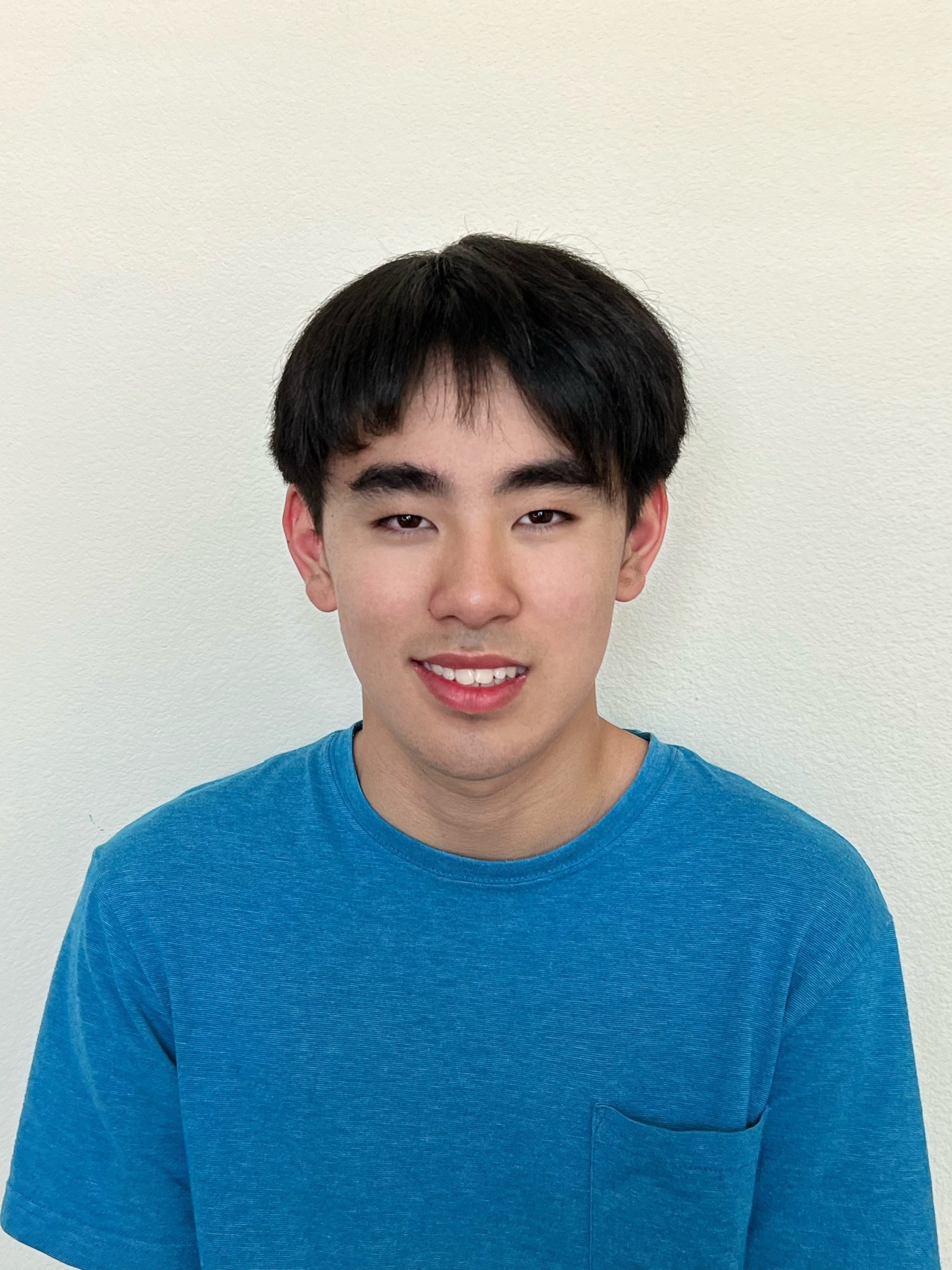
Ethan Ge
RemoteRF – remote interface with software-defined radios
Mentor: Eric Haseltine
Year: Sophomore
As an engineering student passionate about making wireless systems education more inclusive and accessible, I developed RemoteRF (https://wireless.ee.ucla.edu/remoterf/), a remote-access platform that allows students to interact with real software-defined radios (SDRs) over the Internet. I built RemoteRF to address the high cost and limited availability of lab hardware that often prevents students—especially those from under-resourced backgrounds—from gaining hands-on experience in wireless communication. Instead of requiring personal equipment, students can time-share a centralized pool of SDRs via UCLA’s VPN infrastructure, allowing them to conduct real-time experiments from anywhere.
RemoteRF has already been used by over 100 students across three UCLA courses, including EC ENGR 132A, 230B, and 239AS. Feedback has highlighted how empowering it is for students to apply digital communication and signal processing concepts using real hardware—without physical or financial barriers. To me, this project represents a broader vision: transforming the Internet into a tool not just for consuming content but for democratizing deep technical learning. As RemoteRF expands into high school outreach programs like COSMOS and seeks adoption by community colleges, it reflects a commitment to building a more equitable and ethical educational Internet—one where access to foundational technologies is open to all.
